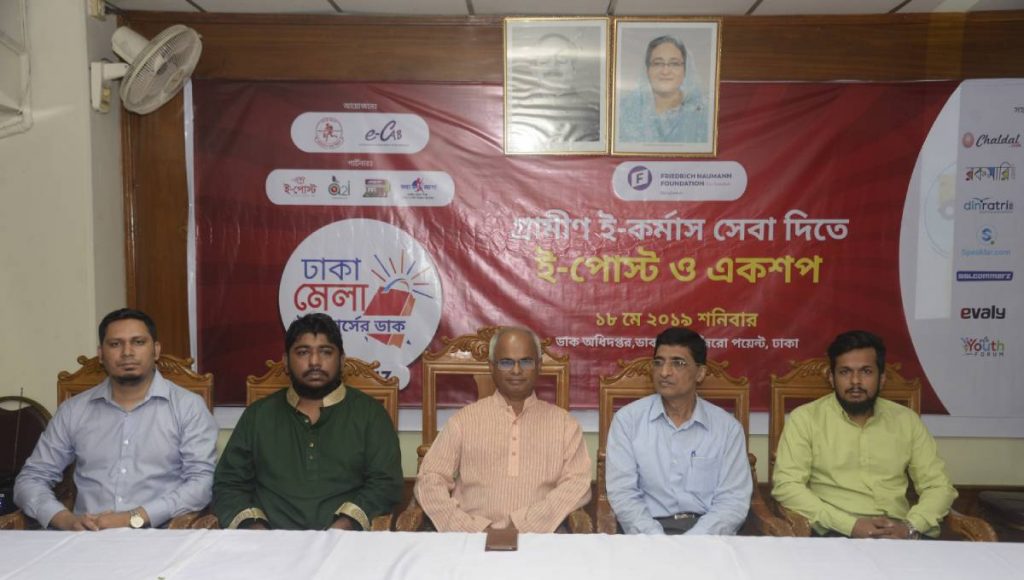Geneva, Jul (Kinda Mohamadieh) – Women in digital trade was the subject of a workshop convened at the World Trade Organization on 1 July.
The day-long workshop was co-convened by the European Union, Trinidad and Tobago and Senegal, the fifth since the release of the Joint Declaration on Trade and Women’s Economic Empowerment at the WTO Ministerial Conference in Buenos Aires in December 2017.
Ministers who signed the Declaration agreed to collaborate on making trade and development policies more gender-responsive, including through “information exchanges … and voluntary reporting during the WTO trade policy review process”, “sharing best practices for conducting gender-based analysis of trade policies, “sharing methods and procedures for the collection of gender-disaggregated data”, “working together in the WTO to remove barriers for women’s economic empowerment and increase their participation in trade” and “ensuring that Aid for Trade supports tools and know-how for analyzing, designing and implementing more
When it was released during the Buenos Aires ministerial, there was immediate widespread concern and objections from women’s groups worldwide (see below).
At the opening session of the 1 July workshop, Ms. Arancha Gonzalez, Executive Director of the International Trade Centre, said that the international trade community could support women’s economic empowerment and leveling the playing field for them through negotiating international rules on e-commerce and investment facilitation.
She called on the participants to focus on preparation for the 12th WTO ministerial conference, which is scheduled to take place in Kazakhstan in June 2020.
Also speaking in the opening session, Roberto Azevedo, the WTO Director-General, cautioned that if the international trade community is not able to agree on new rules for the digital economy, the result will be fragmentation and higher costs and barriers, thus leading to excluding many, including women entrepreneurs, from the opportunities that the digital economy offers for women and other groups.
Ms. Pamela Coke-Hamilton, director of the UNCTAD Division on International Trade and Commodities, also spoke in the opening session representing Mr. Mukhisa Kituyi, Secretary-General of UNCTAD.
She noted that the digital world is not gender neutral, whereby there are gender-specific challenges that women face and that should be addressed.
The Ambassador of the European Union to the WTO, Mr. Marc Vanheukelen, said that negotiations on e-commerce rules that started in April should adopt a gender lens.
Participants at the workshop heard messages on how digital trade can help with addressing the gender gap in the economy and the need to move trade towards an inclusive people-centered and gender-aware policy approach.
It was suggested that enabling access for women to the digital sphere will contribute to the growth of developing countries’ economies, while aid for trade programs could be of help in this regard.
Other issues addressed during the workshop included the ability of the digital economy to create new
Participants also discussed the gender-specific challenges that women face in the digital sphere, including gender discrimination in the ICT sector that are usually male-dominated, the need for more tailored programs to support women in small and
The workshop included sessions showcasing examples of online businesses, where speakers stressed the importance of finance and networking.
Mark Wu, the Henry L. Stimson Professor of Law at Harvard University, stressed in his inputs that the gap to be bridged is not only about new rules, but also about establishing an enabling environment in the form of physical infrastructure particularly in developing countries, such as addressing women’s access to reliable internet technologies, including outside of major urban centers.
No matter what the rules are, the divide will not be addressed without dealing with the physical component, he stressed.
Another speaker pointed out that any new e-commerce rules should not create new barriers for women’s economic empowerment.
However, there is generally a notable aspect of the Joint Declaration on Trade and Women’s Economic Empowerment, and the consequent process: the absence of the impact of existing trade rules on the situation of women.
In response to the Declaration, a large number of women’s groups released in December 2017 a statement where they noted that the Declaration “fails to address the adverse impact of WTO rules and instead appears to be designed to mask the failures of the WTO and its role in deepening inequality and exploitation”.
“The removal of tariffs and import limits alone have been detrimental to women’s rights. Tariff reductions reduce government revenue essential for public investments in health, education, energy, water, transport
“The proposal for the WTO to deal with “new issues” [including e-commerce] threatens women’s human rights even further”, the statement highlighted.
The groups signing the statement noted that “if governments are genuinely interested in advancing women’s human rights through just trade arrangements, they would allow for pro-poor public stockholding of food, allow domestic regulations a state deems necessary to advance women’s human rights and the public interest, ensure that states can fully utilize intellectual property flexibilities to provide access to medicines, seeds, technologies that advance women’s human rights and refrain from entering into bilateral or multilateral agreements that further restrict the capacity to use domestic regulations in the interests of the public in any way they deem necessary”.
It is worth noting that studies show that the most effective gender equality policies seem to consist of various forms of positive discrimination in national regulation, such as gender-sensitive domestic services initiatives.
However, such initiatives would sit at odds with the WTO’s “anti-discrimination” rules, which is one dimension of the interaction between trade and women’s empowerment that is worth considering in this debate.
When it comes to women and digital trade specifically, studies about the internet observe that small and
There is also
For example, the majority of developing country economies consist of mundane products for which opening the online route and e-platforms equipped with complementary e-commerce services for payment, logistics
Recent research on the e-commerce rules proposed for current negotiations points out that such rules would “reinforce the same model of unbridled globalization that feminists have long been critiquing for its pernicious effects on women in the global south”.
This research highlights that such rules, if agreed, would likely lead to erosion of the revenue base essential for underwriting care infrastructure, precluding governments’ ability to address algorithmic discrimination against women, deregulation that ignores digital restructuring of agriculture, and loss of the right to create digital public goods for women’s economic empowerment.
[The e-commerce propositions include: permanent ban on customs duties on electronic transmissions, prohibition of mandatory source code/algorithmic disclosure requirements, enhanced market access and national treatment for digital service providers, adoption of an unrestricted cross-border data flows regime, among other propositions discussed at the informal joint initiative on e-commerce in which a number of WTO Member States are engaged.]
Published in SUNS #8940 dated 5 July 2019




